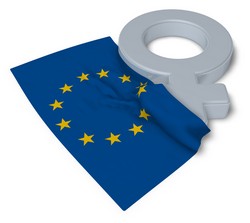Gender mainstreaming and the economic crisis
Gender mainstreaming (GM) is a core EU policy, representing the EU’s commitment to equality. Yet, gender mainstreaming (GM) policies are often limited in terms of implementation. Commitments to GM are often ignored or de-prioritised, particularly in areas of economic policy. Current methodological approaches in political science cannot adequately explain these outcomes. Therefore, the project MGINEUAFC (Mainstreaming gender in the European Union after the financial crisis) created a new approach. Researchers gathered new detailed data on policy implementation processes that pose a barrier to realising EU gender equality obligations. They conducted a case study analysis on GM within EU economic policies, since the financial crisis. This afforded a better understanding of the instruments of both transformation and continuity of gender inequality in the EU. New data was also gathered to explore the impact of the EU’s economic policy responses to the Eurozone crisis as regards gender inequality commitments. Finally, the team worked towards a better understanding of institutional development of the EU since the financial crisis and how it bodes for GM policy in the future. Book chapters and journal articles have been published, and results presented at international conferences. Additionally, empirical publications that apply empirical analysis to collected data have been released. One such publication applies the insights of feminist political economy to theorise instruments of ‘resistance’ to the inclusion of gender in EU policy. Data was explored from several different angles, such as how we should understand ‘the crisis’; how gender equality is linked to democracy in the EU; how the role of the European Parliament has developed since the financial crisis to promote gender equality; and how the EU’s economic governance procedures have changed EU Member State relations. The team put together three conference panels which focused on gender and the effects of the financial crisis in the EU. In addition, a two-day international workshop was held. Thirty feminist activists, researchers and consultants were present. Conference results will be published on a blog. The blog links academics, activists and consultants. In this way, feminist analysis can be available to a broader audience such as activists, civil society and the lay reader. Project work will also help in capacity building in the European Research Area (ERA).







